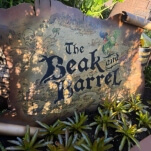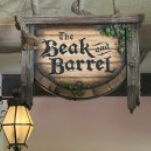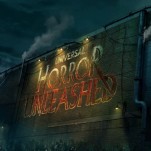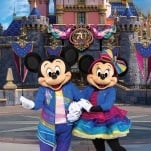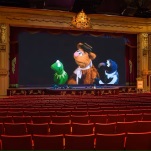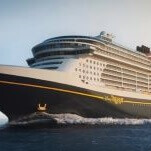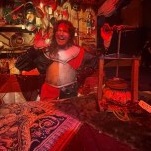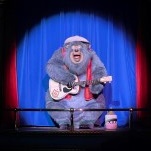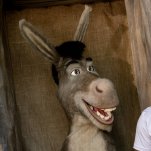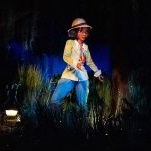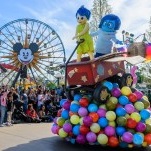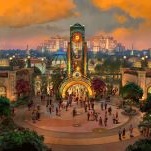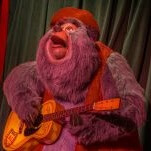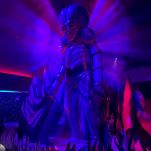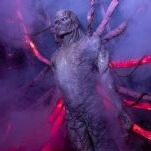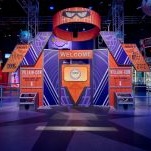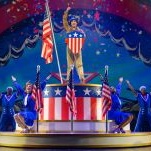It Was Time for Splash Mountain to Change
Photo courtesy of Disney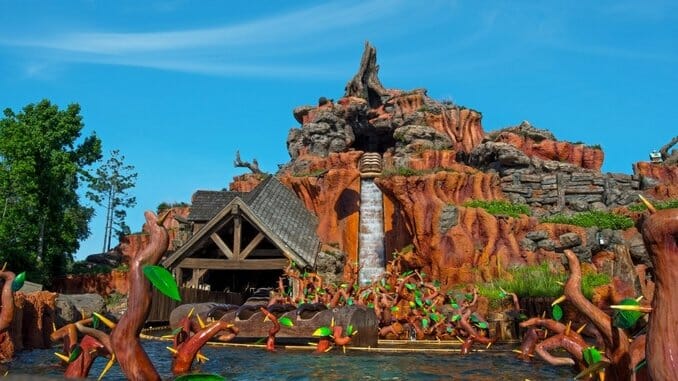
UPDATE: Disney has confirmed that Disney World’s Splash Mountain will be closing permanently on Jan. 23, 2023. Its last day of operation will be Jan. 22, 2023. No timeline has yet been given for the closure of Disneyland’s Splash Mountain.
I love Splash Mountain. It’s one of the best rides ever made by Disney, and even though it didn’t really exist when I was a kid (I was a teenager when it opened at Disney World, the only Disney park I went to growing up, and thus already had firmly established favorites at the Magic Kingdom that were deeply entrenched by nostalgia), it’s still one of my favorite rides at any Disney park. Heck, I ranked the California version as the best ride in Disneyland. When you look at what makes a great theme park ride—the synthesis of theme, visuals, music, story and ride experience—it’s hard to find any design flaws on the surface. And despite all that, it’s absolutely time for the current version of Splash Mountain to go.
Splash Mountain might seem to be about as perfect as theme park rides get, but it has one major foundational flaw that should’ve prevented it from ever leaving the drawing board. It stars characters from Song of the South, the 1946 film that Disney has kept hidden since 1986—three years before the first Splash Mountain even opened. Yes, the ride ignores the more blatantly problematic portions of the movie—there’s no Uncle Remus, no human characters, no references at all to race relations or sharecropping. But it’s still inherently linked to a movie that Disney has been embarrassed by for four decades—a movie that portrays race relations in 19th century Georgia in a positive, nostalgic light. A movie that’s based on a white man’s commercial adaptations of African folktales and slave stories. You can’t separate Splash Mountain from Song of the South, and there’s no reason to reference that movie at a theme park.
Earlier this week Disney announced that it would be retheming Splash Mountain at Disneyland and the Magic Kingdom into a ride based on the 2009 film The Princess and the Frog—the first (and so far only) Disney animated feature to star a Black lead character. Disney traditionalists, who grouse about any changes to the theme parks—complaints I often find myself agreeing with—were unhappy. So were racists. (There might be some overlap there?) But the overall response was refreshingly positive. Most people seem more excited about the prospects of a ride based on a popular, recent film starring a beloved Disney princess than they are about a ride that goes out of its way to cover up the unloved and disowned 75-year-old film that it’s based on.
Here’s a bit of context for people who haven’t ridden Splash Mountain or seen Song of the South. I’m just old enough to have seen the movie in the theater during its last rerelease in 1986, and mostly all I remember is that, other than the songs and cartoons, it’s beyond boring. Its racism is overt, but not in the aggressive, transparently hateful way that The Birth of a Nation’s is; it wants to be a heartfelt depiction of racial harmony, but in the process it gives a deeply ahistorical picture of what race relations were like in the South after the Civil War, while also encouraging Black people to be happy with a system that inherently dehumanizes them. The movie basically says that Black people were better off when they were toiling in the fields for white landowners, and although technically the time period in which its set would make Remus a sharecropper and not a slave, the movie avoids addressing the difference between those two. Not that there was much of one: Southern Black sharecroppers were still subject to racist laws and practices that prevented them from enjoying the freedoms they had been granted. There’s also a moment where Uncle Remus, the kindly old man who shares the animated folk stories with the movie’s young white lead, talks about how much he misses the past—a past in which he would’ve been a slave, and not just a sharecropper with a nominal amount of freedom.
Disney wisely left all of that out of Splash Mountain. They focused on the movie’s animated portions, which depict the African-American folktales that Atlanta writer Joel Chandler Harris wrote down under the Remus name in the 1870s and ‘80s. These stories star a classic trickster figure in the form of Br’er Rabbit, who regularly outsmarts Br’er Fox and Br’er Bear as they try to catch and eat him. Song of the South featured three shorts starring these characters, and all of them are referenced in the story of Splash Mountain. Other than Br’er Fox’s voice, which sounds distressingly close to a stereotypical minstrel character, there’s nothing much in the ride itself that would strike somebody as racist.
The ride doesn’t just ignore the live action parts of Song of the South, though. It also changes a key part of one of the animated shorts, the central plot point of the segment known as “Br’er Rabbit and the Tar Baby.” In the folktale and the cartoon, Br’er Rabbit gets stuck to a ball of tar that Br’er Fox dresses up like a baby. To escape he tricks the fox into throwing him into a briar patch—a fall that Splash Mountain turns into its signature 50 foot drop. Obviously Disney wouldn’t touch the term “tar baby,” even in the 1980s, and so in the ride Br’er Rabbit now finds himself stuck inside a honey-filled beehive.
-

-

-

-

-

-

-

-

-

-

-

-

-

-

-

-

-

-

-

-

-

-

-

-

-

-

-

-

- Should You Stay at Walt Disney World's Swan and Dolphin and Swan Reserve Resorts? By Garrett Martin December 19, 2023 | 12:00pm
-

-

-

-

-

-

-

-

-

-

-


